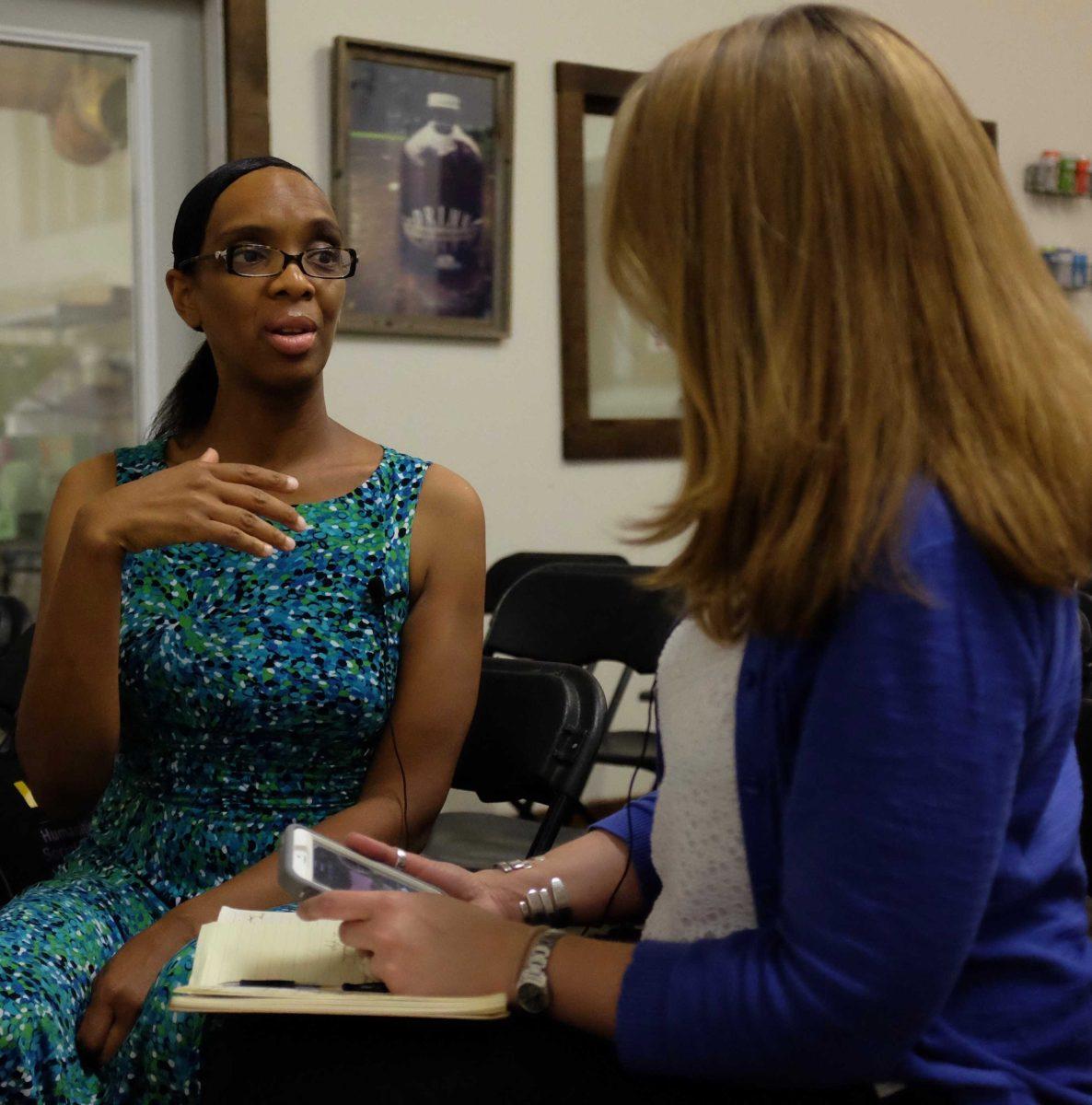Black athletes in America are finding themselves in a form of slavery in college athletic programs, LSU sociologist Lori Martin implies in her book, “Pay to Play: Race and the Perils of the College Sports Industry.”
Martin outlined for a Science Café crowd in Baton Rouge this week of the efforts at controlling the participation and compensation for black athletes.
Merchandisers, the NCAA, and top-tier universities, such as LSU, are part of a billion-dollar industry which excludes athletes from the profits.
Martin used George Mason University’s surprising run in the 2006 men’s basketball tournament as an example of the influence players can have on a university’s financial fortunes. Her research found the number of licensees of university products jumped from 40 to 53 after the team made a surprising run to the NCAA Final Four in spite of entering the tournament as an 11 seed. That increase amounted to about $100,000 in revenue, none of which went to the players.
In her book, Martin also surveyed current and former student-athletes for their perceptions on problems and solutions. While the results lacked significant she said one common sentiment emerged: the call for some form of unionization of athletes.
“If we’re going to be exploited we should at least have a voice,” she paraphrased the respondents.
The desire to control one’s own image was “nearly unanimous,” according to the survey. She described the frustration athletes felt seeing their likeness on the face of tickets and in advertisements promoting the school’s athletic program while having little influence over that use.
The debate over compensation for athletes coincides with the rise of black athletes at predominately white colleges and universities, Martin said, and must be considered in context that acknowledges the country’s racial history.
Her presentation included mentions of prominent black athletes during the past 150 years, from Jack Johnson, the world-famous boxer wrongfully convicted under the Mann Act, to tennis player Althea Gibson, jockey Isaac Murphy and Moses Fleetwood Walker, the latter becoming the first African American to break the color barrier in professional baseball in 1884, more than half a century before Jackie Robinson.
Of particular modern and state relevance was the story of Abe Hawkins, a slave who gained national fame as a jockey while still in bondage at Ashland Planation in Ascension Parish. Black who beat their white counterparts conflicted with the narrative of white supremacy that insisted upon the inferiority of African Americans. Hawkins lived three years as a free man before dying of tuberculosis in 1867.
College athletics are an institution and Martin pointed to the economic windfall that benefits businesses. Fans attending sporting events are among the elements of that institution, she continued. And as an institution, it is a product of the same socially constructed problems present in any institution that arose from a system of racial imbalance.
She said that reality requires asking questions that will lead to a shift in that imbalance. “I don’t have all the answers, but I am open to ideas.”
Martin dedicated her presentation Tuesday to Troy Allen, professor of African-American studies at Southern University and instructor of African-American studies at LSU who recently died from a heart-attack.
Previously hosted LSU Science Cafés are held in the Tap Room of the Tin Roof Brewing Company on the last Tuesday of each month. The LSU Office of Research and Economic Development sponsors the event which features a presentation by an LSU faculty member.
LSU sociologist speaks on black athletes, college sports industry
March 31, 2017
Sociology professor and author Lori Martin talks about her research documenting the financial exploitation of athletes.
More to Discover











